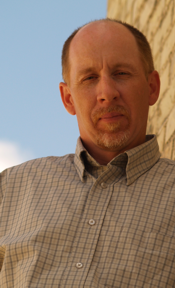A Personal Encounter with Compassion Fatigue
Over several months, we’d spent a few hours every week shooting pool and talking about his life. I find that some teens are more open in conversation if they have something to do, so we often played pool as we talked about his difficult life circumstances. He seldom wore shirts with sleeves and his arms boasted the scars from too many self-inflicted injuries. He wanted to hurt himself. He wanted to disappear and spoke often of taking his life. He used drugs and drank excessively. I’d taken him to the psychiatric ward of the local hospital several times as a safety measure. He would stay for two or three days and call me to come and pick him up. But still the talk of dying continued. One night I got the call; my young friend had been taken to a hospital many miles from our town with a self-inflicted gun shot to the head; he was not expected to live through the night.
My initial reaction was anger. As crazy as it sounds, my first thought was, “How could he do this to me? I’ve spent so many hours with this guy, how could he do this?”
Over the next few months, my life would spiral out of control as I lost weight, slept little, worked too many hours, and fought the nagging voices trying to convince me that I had failed miserably in my care giving. Images of his suicide played over in my mind, and painful, uninvited memories from my own childhood began to flood my conscious mind during work hours. I was a mess, I felt like I was going crazy or having a nervous breakdown. Within a year, I was diagnosed with a bleeding ulcer and burnout. I quit my job working with youth and slowly slipped into a debilitating depression.
Three years of wrestling with depression and I was ready to re-engage with people. I took another job as a clergy, this time in the United States. In my first month, I received a phone call to meet a family in a local motel. I arrived to find a large family in a small motel room and a young woman sitting on a bed, looking like she’d seen a ghost. It had only been about an hour since her little girl had been torn from her arms and pulled into the river after the two of them had fallen into the rapids. After hours of waiting, we were informed that her 8-year-old girl had been found dead. The grief was simply beyond words. As a caregiver, I felt physically exhausted and deeply saddened, but as I walked into my home the phone was ringing. A policeman informed me that there had been a car accident and that a 15-year-old boy had been tragically killed. It was a horrific and senseless accident that left emergency response teams and the police both shaken and in tears. No time for me to rebuild or rest. As the family lived next door, I was with the parents in a matter of moments. I spent most of the next day with the family and in the funeral home. I helped them choose a casket and organized the funeral service and in the midst of my own emotions, I spent hours on into the night trying to craft a eulogy that would honour the young man’s life. Two days later, I stood as the officiating clergy to comfort the bereaved. When it was all said and done, after days of shock and living in trauma story, I was exhausted, empty, restless, and struggling to make sense of two tragic deaths. But this painful encounter would be different.
After the funeral I was informed by a social worker that debriefing was mandatory for first responders, and I was invited to join the session. The room was full of men, with the exception of the therapist. State troopers with arms like tree trunks, paramedics, and fire and rescue workers sat silently, most staring into space or at the floor, all of us trying to avoid eye contact. There was enough testosterone in the room to fill a truck and enough macho maleness to stifle any emotional disclosure. As unlikely as I had presumed it to be, it was not long before one of the state troopers began to talk about his feelings, about his fear, his anger, and of his love for his own teenage daughter. He told the group with tears streaming down his cheeks how he had gone home and wept like a baby, how he took his own teenager in his arms and held her. It was not long before every man in the room was quietly crying in his seat. Each of us was experiencing a profound sense of sadness and yet our open and honest dialogue, our positive regard for one another, together with a skilled and sensitive therapist made this encounter one of the most profound healing experiences of my life.
It would be another ten years until I would hear about compassion fatigue. But as I was listening to the professor describe the concept, many of my own past behaviours and emotions began to make sense. The more I studied the concept, the more amazed I was at how sharing in another person’s pain can have such a deep and painful impact on us as caregivers. It angered me that in all my years of working with people, I’d never heard that caring for others could make me sick. I will always be indebted to the gifted therapist who invited me to debrief with the first responders. What a gift to be offered a space to be human, and to grieve, and to watch a room full of people work through the effects of secondary traumatic stress. What a gift to be invited into a space where I did not have to be the strong one; the superhero. I suspect that many caregivers are still where I was years ago, sick from caring, but with no idea what’s happening to them. My hope is that this website and the resources provided will help people to understand both the risks and the joys of providing support for people in pain.

